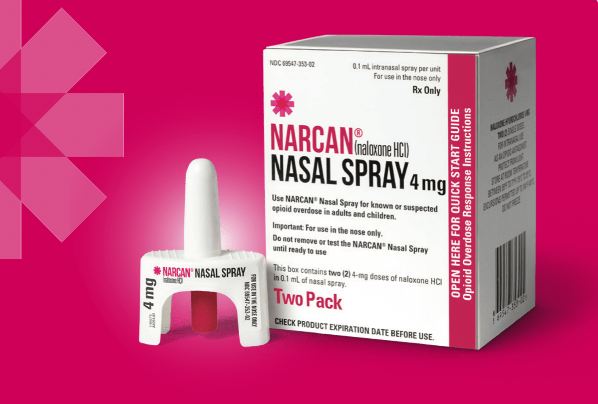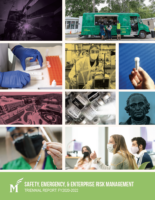Risk, Safety, and Resilience understands the vital role mental health plays in overall well-being and academic and career success. During Mental Health Awareness Month this May, we are shining a spotlight on the wide range of resources available to support our community. We encourage you to explore and take advantage of the programs and services designed to help you thrive both personally, professionally, and academically.
For Students
Counseling and Psychological Services
George Mason’s Counseling and Psychological Services (CAPS) department offers a wide range of mental health resources, including both in-person and virtual (telehealth) services. Visit CAPS in the Student Union Building 1 (SUB 1), Suite 3129 or call 703-993-2380 for more information.
CAPS collaborates with ProtoCall Services to offer after-hour crisis support to students. When CAPS is closed, students should call 703-993-2390 and press “1” to be connected directly to a ProtoCall crisis counselor.
Services Include:
- Individual counseling: Students can engage in therapy to address personal, academic, or emotional challenges.
- Group Counseling: CAPS offers group therapy sessions in a supportive environment for students to share and develop coping strategies.
- Psychiatric Services: With the help of a board-certified psychiatrist and psychiatric nurse practitioner, students can receive treatment and medication if appropriate.
- Referrals: For students needing specialized care beyond CAPS, clinicians can help you connect to community providers.
Student Health Services
(https://shs.gmu.edu/services/mentalhealth/)
Student Health Services (SHS) provides evaluation, screening and referrals for mental health concerns. Call 703-993-2831 to schedule an appointment at your convenience.
Services Include:
- SBIRT Program: The Screening, Brief Intervention, and Referral to Treatment (SBIRT) program is a universal screening initiative that assesses students for alcohol, drug, tobacco use, and depression. Based on screening results, students receive appropriate counseling, consultation, or referral.
- Collaborative Care: Integrates mental health support into primary care settings, allowing for coordinated care that combines medical and psychological services.
TimelyCare
(https://ulife.gmu.edu/timely-care/)
George Mason University has partnered with TimelyCare to provide students with free, 24/7 virtual mental health support. Students can register using their George Mason email address for year-round support.
Services Include:
- TalkNow: Immediate emotional support for a wide range of issues including anxiety, depression, relationships, academic stress.
- Health Coaching: Support in developing healthy lifestyle habits including nutrition, sleep habits, time management and mindfulness.
- Scheduled Counseling: Up to 12 free counseling sessions per year with licensed professionals, allowing students to choose a provider and session time that works for them.
- Psychiatry: Access to psychiatric services through referrals by CAPS, Student Health Services, or a TimelyCare counselor.
- Self-Care Content: A variety of resources such as yoga, meditation, and group discussions to promote well-being.
For Faculty and Staff
Employee Assistance Program
(https://hr.gmu.edu/benefits/insurance-and-benefits/employee-assistance-programs/)
The Employee Assistance Program (EAP) is available to support the well-being of George Mason’s faculty and staff. Employees can access EAP services by contacting the Human Resources department by email hr@gmu.edu or 703-993-2600.
Services Include:
- Employee Assistance Program (EAP): Includes up to four free sessions for services such as mental health, alcohol or drug abuse assessment, child or elder care, grief counseling and legal or financial services.
- Referral Services: For issues requiring specialized care, EAP counselors can provide referrals to appropriate professionals or services.
Support for Anyone
Center for Community Mental Health
The Center for Community Mental Health (CCMH) at George Mason University is a multidisciplinary training clinic that provides accessible health services to the Northern Virginia community. They are located off-campus at 9900 Main Street in Fairfax. Email to make an appointment at ccmh@gmu.edu or call 703-993-1370.
Services Include:
- Therapy and Psychological Testing: CCMH offers individual and group therapy sessions, as well as psychological assessments.
- Emotional Support Line: This free, anonymous, and confidential service provides immediate support for stress, anxiety, depression, grief, and more. This line is available in Spanish and English.
Crisis Resources
Crisis Hotlines
- Suicide and Crisis Hotline
Free and confidential support for people in distress
988
Online Crisis Chat - Veterans Crisis Line
800-273-8255 - Mason Sexual and Intimate Partner Violence Crisis Line
24-hour crisis support resources
703-380-1434 - Crisis Text Line
Serves anyone, in any type of crisis, providing access to free, 24/7 support and information
Text 741-741 - Crisis Line
24-hour suicide, crisis, and information and referral hotline
703-527-4077 - Non-Emergency Contact
Counseling and Psychological Services
703-993-2380Student and Support and Advocacy Center
703-993-3686


